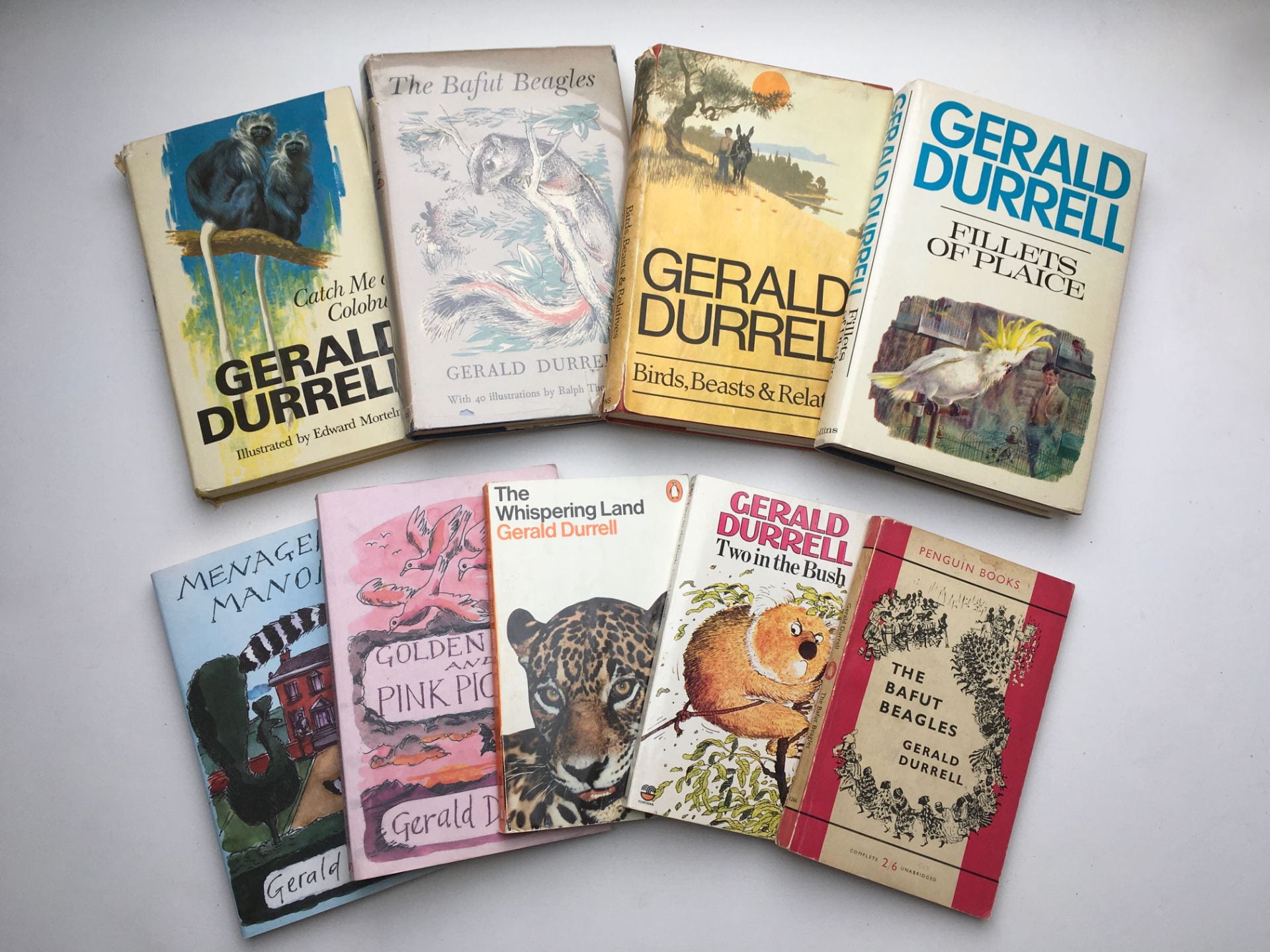Anthony Davis Book Collecting Prize: Books that built a zoo
By Sarah S Pipkin, on 16 March 2021
The 2020 winner of the Anthony Davis Book Collecting Prize, Alexandra Plane, has written about her book collection: ‘Books that built a zoo.’
The collection which I entered for the Anthony Davis Book Collecting Prize brings together various editions of books by the naturalist Gerald Durrell, printed from the 1950s to the 2000s. Durrell was a pioneer of animal conservation who believed that zoos should prioritise conservation and education rather than entertainment and profits. He needed money to realise his vision, and he raised it by writing. His books proved enormously popular—particularly his humorous accounts of his childhood in Corfu, which you might have seen adapted for TV as The Durrells. However, he did not actually enjoy writing; it was a means to an end. That end was the foundation of Jersey Zoo in the Channel Islands, which continues to be a leading organisation in animal conservation today.
You might be thinking that this is an odd choice for a book collection—why collect mass-market books which aren’t particularly old or rare? Why collect books by a reluctant, lowbrow author rather than his brother, the celebrated novelist Lawrence Durrell? In truth, these questions did not trouble me when I first started buying Durrell’s works. This started out as an accidental collection. By the time I discovered Durrell’s writing, many of his books had gone out of print. I began buying them simply because I wanted to read them, not out of any lofty ambitions to be a collector.
It was only later that I began to comprehend the significance and interest books have as physical objects. For example, at the back of my early mass-market paperbacks, Durrell had placed requests for donations from readers to support the work of Jersey Zoo. The evolution of these advertisements over the years reveals how vital the publication of the books was to the foundation and success of the zoo, the first of its kind in the world. In the pre-internet era, these seemingly unimportant paperbacks were able to physically convey Durrell’s appeals for aid into the hands of readers across the globe.
Applying for the prize gave me an opportunity to look anew at my bookshelf. Most of my Durrell books only cost a few pounds, but I realised that this does not mean that they are unworthy of being described as a ‘collection’. Presenting my books to the panel (made up of Anthony Davis himself as well as representatives of the Antiquarian Booksellers’ Association, the Bibliographical Society, the Senate House Library, and UCL Special Collections) was a wonderful experience which enabled me to further expand my understanding of what it means to be a book collector.
I have since completed an MA dissertation on a nineteenth-century atlas collector, and I have just started a PhD on the library of King James VI and I. The reflective nature of the prize’s application process enabled me to tie together my own experiences of collecting with my academic work. Many of the questions I discussed with the interview panel continue to resonate in my research and book-buying, whether I’m rooting through an Oxfam bookshop or studying sixteenth-century royal libraries. If you are a student at a London university with a collection of books which you are passionate about, I would urge you to apply for this year’s prize. You might not identify with the label of ‘book collector’ now, but you may be surprised to discover that it does in fact apply to you, too!
 Close
Close



